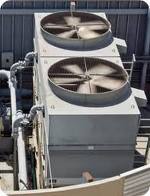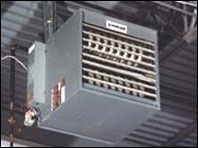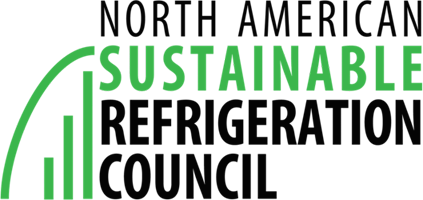Refrigeration And Air Conditioning Service
The ozone layer protects the earth from the harmful ultraviolet radiation from the sun. So protecting it is vital, and proper refrigeration and air conditioning service is a vital part of this protection. Many synthetic chemicals commonly used as refrigerants  destroy the ozone layer if they are improperly released during refrigeration and air conditioning service. These chemicals include chlorofluorocarbons (CFCs), halons, and hydrochlorofluorocarbons (HCFCs). In fact, it is believe that release of these chemicals during poorly managed refrigeration and air conditioning service contributed to the “ozone hole” that now exists over the South Pole.
destroy the ozone layer if they are improperly released during refrigeration and air conditioning service. These chemicals include chlorofluorocarbons (CFCs), halons, and hydrochlorofluorocarbons (HCFCs). In fact, it is believe that release of these chemicals during poorly managed refrigeration and air conditioning service contributed to the “ozone hole” that now exists over the South Pole.
Additionally, many of these same ozone depleting substances (ODS) are believed to be greenhouse gases that are contributing to climate change. So when they are irresponsibly released during shoddy refrigeration and air conditioning service there is a double hit to the environment. These are the main reasons behind section 608 of The Clean Air Act which specifically prohibits the release of CFCs, HCFCs, their blends, and substitute refrigerants during refrigeration and air conditioning service.
Section 608 of The Clean Air Act has the following regulatory requirements:
Technician Certification-technicians performing refrigeration and air conditioning service must meet EPA certification criteria by passing an EPA approved exam.
Refrigeration and Air Conditioning Service Requirements-technicians must evacuate equipment to established vacuum levels during service and disposal of refrigerants.
Refrigerant Recovery and Recycling Equipment-equipment used during service must be certified by EPA approved testing.
Refrigerant Leaks-there are specific EPA standards that are enforced for leak repair during refrigeration and air conditioning service.
Refrigerant Sales Restrictions-sale of ODS refrigerants is restricted to certified technicians.
Major Record Keeping Requirements-all parties involved in refrigeration and air conditioning service must maintain records documenting dates, refrigerant charge amounts, and related service information. This includes technicians, equipment owners, and operators of large refrigeration and air conditioning service and equipment sales companies.
Safe Disposal Requirements-when refrigeration and air conditioning equipment is taken out of service the final person in the disposal chain must ensure that all refrigerants have been removed from the equipment prior to disposal.
In support of Section 608 of The Clean Air Act the EPA is performing random inspections, responding to tips, and pursuing potential violations. They are authorized to assess fines of up to $37,500 per day for any violation of these regulations.

 During your next scheduled industrial air conditioning service, you might want to consider requesting an energy audit as well. While you may spend money on commercial HVAC services on a regular basis to ensure your commercial HVAC system is operating properly and not burning energy inefficiently it is important to also know how well your building is holding the heat that your commercial HVAC system is producing. If your building is not holding the hot or cold air your commercial HVAC system is producing, then you’re throwing away money through the leaks. If the service technician tells you your HVAC system seems to be doing well each time you have an industrial air conditioning service inspection but your energy bills seem too high, then energy leaks might be the main culprit.
During your next scheduled industrial air conditioning service, you might want to consider requesting an energy audit as well. While you may spend money on commercial HVAC services on a regular basis to ensure your commercial HVAC system is operating properly and not burning energy inefficiently it is important to also know how well your building is holding the heat that your commercial HVAC system is producing. If your building is not holding the hot or cold air your commercial HVAC system is producing, then you’re throwing away money through the leaks. If the service technician tells you your HVAC system seems to be doing well each time you have an industrial air conditioning service inspection but your energy bills seem too high, then energy leaks might be the main culprit. Infrared cameras and infrared thermographs can also be used to detect energy leaks. These will show the temperature differences in various areas of a building. By pointing out where the hot and cold spots are, you can then determine where your energy from your commercial HVAC system is leaking. Again, the auditor should use these tools before and after the building is weatherized to ensure that the leakage problems have been fixed.
Infrared cameras and infrared thermographs can also be used to detect energy leaks. These will show the temperature differences in various areas of a building. By pointing out where the hot and cold spots are, you can then determine where your energy from your commercial HVAC system is leaking. Again, the auditor should use these tools before and after the building is weatherized to ensure that the leakage problems have been fixed.







